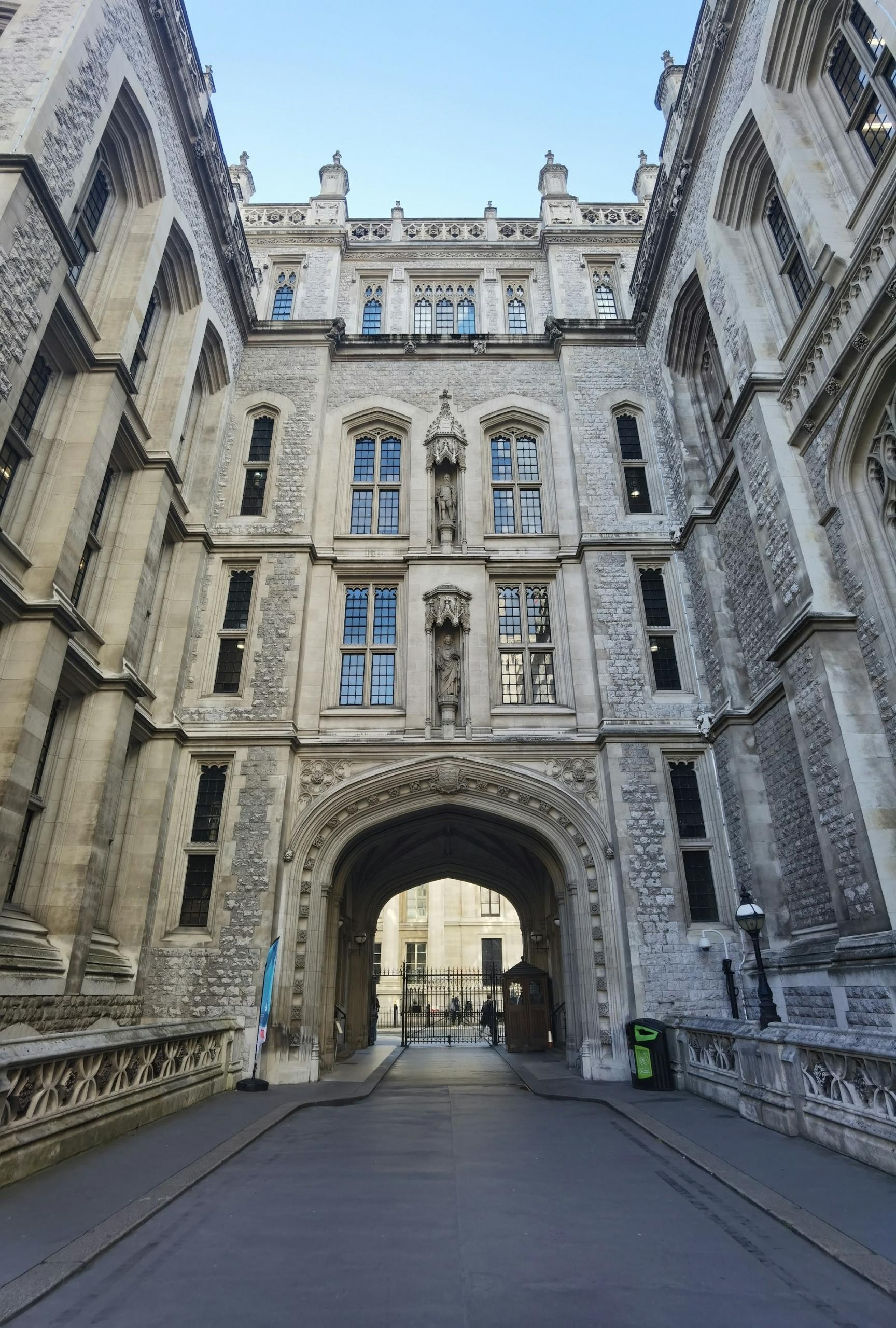This was in a red-brick building of the kind beloved by Victorian optimists.
Sebastian Faulks
Most people don't think of University College London (UCL) as a traditional Red Brick university. Historically, the term refers to higher-learning institutes in industrial towns, like Birmingham and Newcastle. They opened their doors at the height of the First Industrial Revolution, and mostly focused on training future engineers.
Since then, both the 'Red Brick' designation and these schools' study programmes have expanded. Any student filling out a UCL university application today may choose to study languages or fine art, even an array of social sciences. Knowing how to get into Red Brick universities is the first step towards education in students' chosen subject. That's what this article explores:
- Admissions statistics for Red Brick universities
- How to get into Red Brick universities: UCL, KCL & more
- the UCL university application
- how hard it is to get into UCL

Red Brick University Entry: By the Numbers

We must start by illustrating the difference between a Russell University and Red Brick universities. The latter predates the Russell group by more than 150 years.
Russell formed in the 1990s, as an administrative association. Over its 30 years in operation, the best UK universities have joined the Russell Group.
The schools we highlight in this article are Russell Group members. One school UK university applicants from around the world apply to, LSE, is also a Russell school. However, the London School of Economics is not a Red Brick.
Defining schools UCL and KCL is a bit more tricky. Neither was one of the six original Red Bricks, nor were they on the expanded roster. That's despite them being built in the right timeframe, and a few red brick campus buildings.
Admission criteria for Russell Group universities, Red Brick or not, are demanding. Candidates must present good grades and a strong record of academic achievement. As entry requirements are typically subject-specific, learners must demonstrate their dedication to that subject. One might do so through extracurricular work, research, or volunteering on a subject-related project.
The 2022 ratio of KCL acceptance to applications, according to the Student Good Guide.
It would be unfair to highlight statistics for one or two Russell Group schools, Red Brick or 'glass plate'. Still, the KCL acceptance rate is a fair representation of admissions rates across the Group. All Russell Group universities are competitive, meaning only the top students will make the cut.
Getting Into UCL, KCL and Similar Schools
UCL, KCL and others advise reading about your proposed course of study before applying. Their course catalogues list all the requirements for candidacy. Those may include subject-specific study, a certain grade minimum, or extra work.
Most of these universities require candidates to sit an entrance exam. This, too, appears across the board, for Pearson Group institutions.

Even students applying to Oxford - another Russell Group school, typically must sit such an exam. In some cases, such as for law or medicine, candidates will sit an aptitude test, rather than a general exam.
Before applying for any course, make sure you meet your course's entry requirements.
This advice applies to international students, as well as transfers, those from different educational backgrounds, and mature learners. This group of universities welcomes applicants of all types and circumstances.
A-Level grades range between A*A*A and BBB, depending on the study programme. Often, these schools do not consider UCAS tariff points to determine eligibility, only your three best A-Level results (if you sat more than three). They also consider GCSE results.
Practically every aspect of entry to these schools depends on course requirements. Some courses require you to provide references; others do not. Should your chosen course demand references, at least one of them should be from someone who knows you in an official capacity. Such might be a teacher - a recommended source, or a school adviser.
Besides grades and recommendations, you must provide a personal statement. Your writing should demonstrate your passion for your subject, and the actions you've taken to pursue it. It should describe your personal qualities, in particular as a leader and academic. Our next chapter lists personal statement details, as well as what not to include in your draft.
Applying to UCL

The timing for university application submissions is awkward. Learners planning on higher education will register for the Universities and Colleges Admissions Service (UCAS) long before they have the grades to apply for any courses. They will petition their target schools for entry before earning the grades that pave their way to university acceptance.
If you're a student in the UK, you likely won't have your A-Level grades in time to submit your UCL application package. This university group, including UCL, bases their admissions decisions on predicted grades. Your school or college input these grades, based on your academic performance, thus far.
In practice, this system dominates. The best universities in the UK routinely slot incoming undergraduates based on these predictions. Such may cause difficulties later, should the actual grades come in lower than the predictions. By contrast, international candidates needn't worry about predicted grades.
UCAS correlates IB grades to the A-Level grading scale.
Russell Group universities accept international candidates with full International Baccalaureate Diplomas (IBDP). Please note that they will not consider any applications that include individual Baccalaureate certificates. Nor will any school consider any incomplete application package.
International students must include an Extended Essay and Theory of Knowledge. Like UK-based students, international learners must review the catalogue and apply for courses they have subject-specific knowledge of.
Other UK Qualifications
GCSE to A-Level, and onto university is the traditional education path, but not everyone takes it. Learners may earn their secondary education certificates through further education courses. And, candidates from Wales and Scotland also wonder how hard is it to get into UCL and other such schools.
The percentage of students who entered university with at least one BTEC credential, according to a 2018 report by the Social Market Foundation.
Here, we break down students' path to access from four non-traditional educational paths. Please note that these learners must also match their credentials to university course requirements to qualify for consideration.
Scottish Highers
- three Advanced Highers OR
- two Advanced Highers and three Highers
- Highers must be in five distinct subjects
- Highers alone do not qualify based on course requirements
Welsh Baccalaureate
- WBQ Advanced Skills Challenge Certificate
- PLUS two A Level grades
- must be subject-specific
BTEC
- Level 3 BTEC
- Level 3 National Extended Diploma (RQF)
- Only acceptable for some programmes
Mature Learners
- same application process as other students
- grades should not be older than three years
- mitigating circumstances considered
- academic achievement on par with other students
Personal Statements
In all cases, applicants will submit a personal statement, along with their completed UCAS application. For international students, the Extended Essay serves the same purpose.
On this point, IB candidates have the easier row to hoe. Students know how to write research papers and what information they should contain. But what must you include in your personal statement - and what tone should it convey?
Your personal statement isn't about you, it's about your accomplishments, and why and how you pursued them. Examples of such might include volunteering in a field related to your subject, or conducting experiments. You should also write about what you learned from your studies, and how you will put that knowledge to work.
Your tone should be positive and assertive. Admitting to missteps is acceptable, but only if you turn those mistakes into teaching moments. Don't be afraid to confess uncertainty, but do so with a tone of keen anticipation, rather than fretful anxiety.
In your effort to get everything just right, don't neglect good writing practices: use proper grammar and a full lexicon of words. Proofread your work and ask others to critique it. Write several drafts, until you're satisfied with your narrative presentation. This lad explains how to draft a winning statement.
How Hard is it to Get Into UCL?
Getting into UCL is no harder than, say, getting into Cambridge. You will follow the same steps - UCAS application package, subject-specific grades and, possibly, and interview.
You have little control over the UCAS application form and all the information you need for it. Nor can you control your grades; at least, not at this late stage.

However, two application components are under your control. Your personal statement, which gives admissions officers insights into your personal and academic qualities.
Keeping to UCAS and your chosen school's application deadlines is your second channel of influence. Nothing will derail your application faster than not keeping to this timeline. Here, we highlight UCAS' timetable; don't forget to check your chosen school's calendar for deadlines.
UCAS Timeline
31 January
Deadline for most undergraduate applications
28 February
UCAS Extra opens for applicants who received no offers
Also, for candidates who rejected all their offers.
Early June
Reply to offers if you’ve received decisions
Early July
Last date to add a UCAS Extra choice.
Mid-September
Final date for 2024 UCAS undergraduate applications
Summarise with AI:











